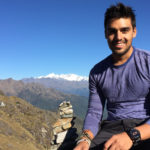Chinese consumer electronics company Honor is set to unveil its latest lineup of smart devices for the South African market. How about we forecast…
SA incubator Savant in process of raising funding for 11 tech companies [Q&A]

Cape Town tech incubator Savant is busy raising funding for four of the 16 technology related companies in its portfolio — while pursuing second-round funding for another nine, the incubator’s CEO Nick Allen has confirmed.
“Getting this next round of funding, usually for companies that are still generally pre-revenue, is our biggest challenge. We are also undertaking due diligence on a further three companies,” Allen told Ventureburn last month.
Savant has assisted 12 companies in the accelerator’s portfolio to source either seed or startup funding. Among the companies Savant has worked with are medtech firm Leatt, food innovation company Formfoods, battery management company Balancell and medical device Smartblade.
“We hold stakes in another two companies that we are not actively working on — Leatt and Balancell — and have exited one — Snuza,” Allen said, adding that he could not disclose the terms of that exit, which was to the original investors in the company.
Savant currently runs a seed fund on behalf of Technology Innovation Agency (TIA), in which firms can receive up to R600 000 each from the state agency to seed fund innovative ideas and projects.
In addition, the accelerator is part of the Small Enterprise Development Agency’s (Seda) incubation programme, which it joined in 2015.
Read more: State, private sector must partner to ride out Fourth Industrial Revolution – Zulu
Responding to a number of questions from Ventureburn, Allen detailed the performance of Savant’s current portfolio.
This Q&A is part of a series of interviews that the publication is conducting with venture capitalists and angel investors in the SA tech startup sector (see the footer of the story for links to other interviews). While Savant is not a venture capital (VC) per say, the incubator does takes a stake in the businesses that it incubates.
What kind of return on equity do you generally look at?
If we put a number to it, we’d probably looking at returns (IRR) in excess of 30% to 40%. Ultimately, we’re looking for companies that have products that will demonstrate significant growth on the international market.
If we were running a fund we’d be looking to stay in for a long time, probably seven to 10 years.
It’s unlikely you’ll get a return staying in shorter than that in the hardware game, particularly as we get involved so early in the game.
What percentage of equity do you usually look to take?
It does depend on company stage, but if an inventor comes in with a project that is significantly pre-market we’ll look to take (a stake of) about 15%. Some of our inventors have elected to give us more given the impact we’ve made on their companies.
How many of your investments have had exits?
We have exited only one investment, but other investors have exited another two — so three in total.
How many are making really good growth?
We have two that are currently demonstrating good growth — 50% plus year on year, depending on where they are in the process. For those that have recently launched to market this is easy, the goal is to enter new markets before growth plateaus locally. We have two companies that I feel are currently underperforming.
Why would some investments be doing better than others?
Our companies are usually bringing novel products or technologies to market, so market acceptance and how you drive and achieve this is critical.
Are there say three or four important ingredients to making an investment return good value for investors?
Strong technology or product, market fit that is communicated well, a commercially focused team and perseverance.
Of those investments you have exited, what made them successful?
Strong technology or product fulfilling unmet demand, well communicated to the market and international market opportunities.
How many of your current investments have had second or third-round investments?
Commercial follow on funding — none. Generally guys bootstrap off strong revenues once they get going. Our preferred exit option would be to an international VC or private equity player or international trade sale.
Read more: Sometimes startup just hits right market at right time – Angelhub man [Q&A]
Read more: Knowledge, networks, funding: what’s behind VC that set up Uber exit [Q&A]
Read more: HAVAÍC holds onto five investments despite two offers, says Ian Lessem [Q&A]
Read more: Jozi Angels wants R8m return from R400k invested per startup [Q&A]
Read more: Market readiness key when investing in startups – 4Di Capital founder [Q&A]
Read more: Startups need at least 10x in 5 years to be good investment – VC, angel investors
Featured image: Savant CEO Nick Allen (Daniel Mpala)

